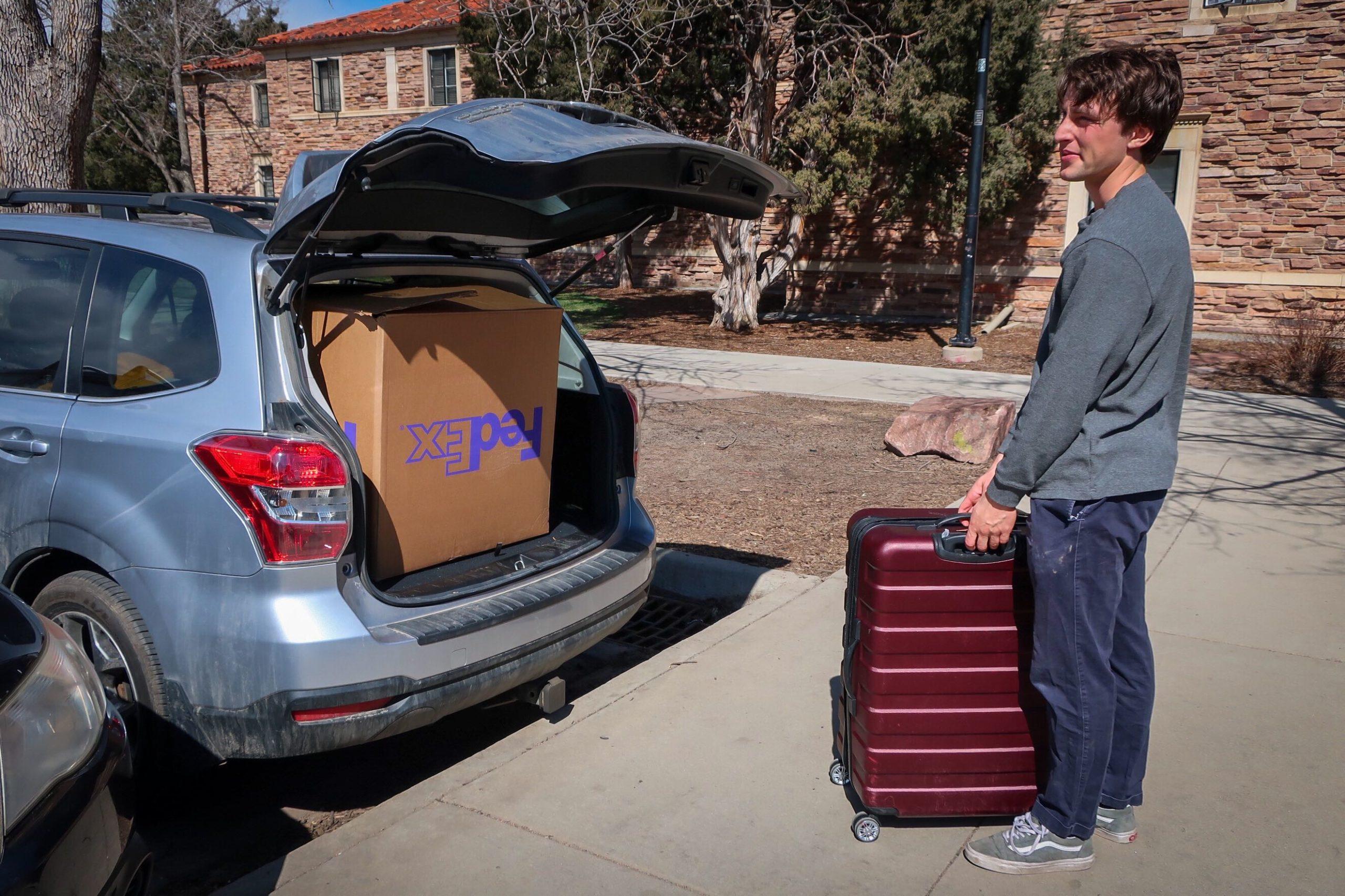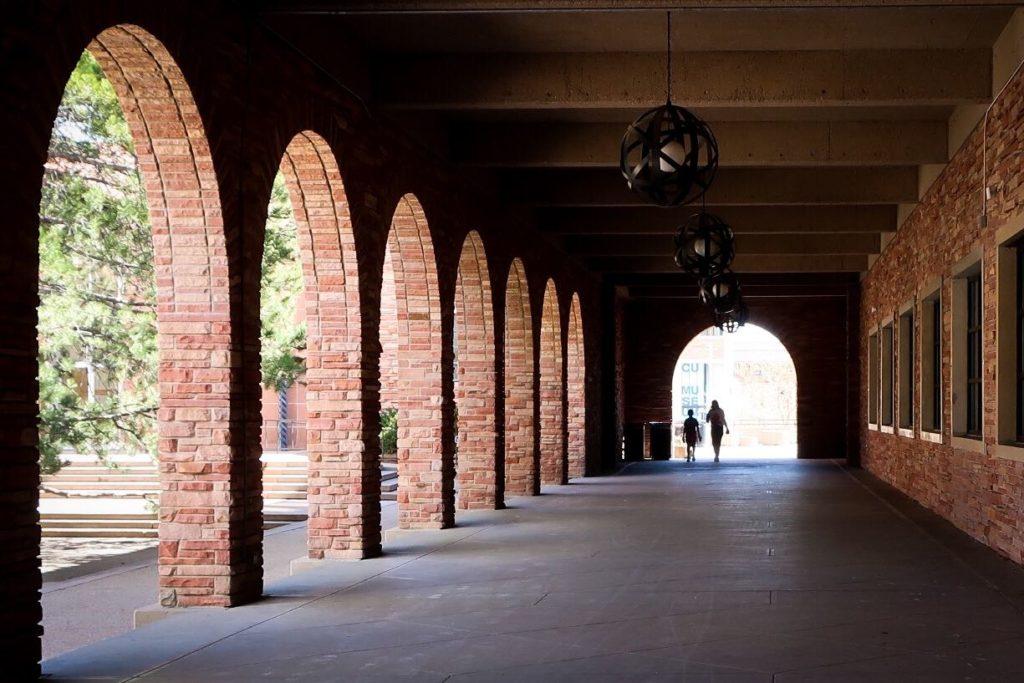
On Colorado university campuses, social distancing is the norm in the face of the new coronavirus. As life moves online, students are finding a new normal.
Two weeks ago, CU Boulder film studies major Tess Lieber was putting together her senior film project. She’s still trekking to campus to use editing equipment. But now she’s doing that between fielding worried questions from her family after CU Boulder officials canceled May graduation.
“A lot of cancellations, a lot of money lost, and a really crappy way to end my senior year,” said Lieber, who hails from New York.
The situation on the CU Boulder campus is changing fast. Last week many students thought they could stay in the dorms. But on Monday, March 16, CU Boulder encouraged students to move out.
On Wednesday, Chole Faucher was one of the remaining students in the Sewell Hall. She packed up her room as she waited for her parents to drive from California and pick her up. Faucher she was worried about a friend, an international student from China, who didn’t have the option of going home.
“I feel bad. That’s obviously a stressful situation,” Faucher said.
As of Wednesday afternoon, CU spokeswoman Deborah Mendez-Wilson reported about 6,000 students remained in the dorms out of 8,598. Those numbers are expected to decline as more students head home.
In the coming weeks and months, one challenge for instructors will be maintaining a sense of social fabric for students as they go home to their respective states, childhood homes and slow internet connections.
For anthropology instructor Oliver Paine, the focus this week has been more basic: establishing a class structure. Paine wants to maintain the structure of a physical class. He delivers a 30 minute live lecture to students at the same time as his regularly scheduled class. He also records the lecture, which students can only download one week after it’s posted online.
“I’m doing that because I really want to duplicate the pace of a normal class, as opposed to say just spending a couple of days recording all the lectures, posting them, and then students picking them off the shelf when they need to,” Paine said.
CU Boulder is making tutorials available for professors and instructors who are moving classes online.

In the coming weeks, an important mantra for instructors will be student engagement, said Vanessa Dennen, professor of instructional systems and learning technologies at Florida State University.
“The whole point of the technology is to connect the people,” Dennen said. “It’s easy for us to focus right now on the technology because that’s what’s going to be connecting us as we hide away in our homes for a little while.”
She said as patterns continue to be disrupted, students and teachers need to remember to be kind to one another. Dennen writes that opinions over online education will likely become even more polarized as people equate emergency online classes with online learning.
“We’re taking a band-aid measure right now to do the best that we can during a crisis situation. And what that means is a lot of people will be struggling to use new technologies, struggling to use new means of communication,” she said.
Graduate cello performance student Jessica Lee has already transitioned lessons online. But because the university has limited large gatherings, Lee’s music ensembles have stopped practicing.
“We’re not really rehearsing anymore because there’s no shows,” she said.
As performances fall off the schedule one by one, Lee does find one bright spot. She connected with a friend, a saxophone player, to rekindle the idea of working on duets together in person.
“It’s something we hadn't planned on doing. He’s focused on the band world, I’m focused on the orchestra world,” Lee said. “In some ways it’s opened the door to, ‘Who’s in the area? Who can I collaborate with?’”
Like everyone at CU Boulder and other schools, Paine says circumstances are changing fast. He’s adjusting to a slower internet connection at home. And he misses the connection to his colleagues — just like his students do. But, he says he’s rolling with it.
And that’s the new normal under COVID-19 — where the only constant is change.
Do you work in higher education? Are you a student? CPR wants to hear what your experience has been under COVID-19. How are you getting creative as you move your life online? Email us: [email protected].









